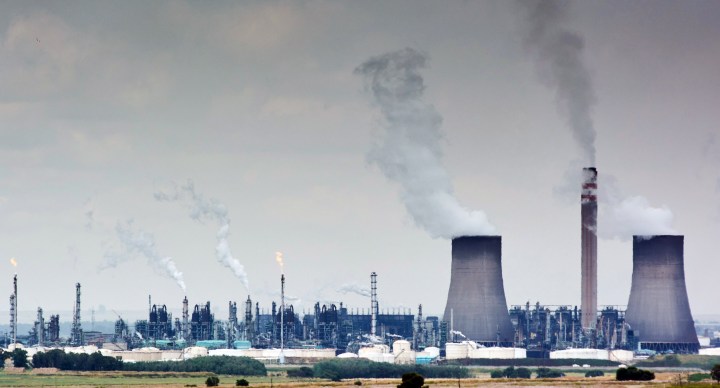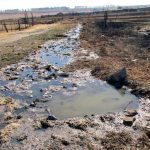JUST TRANSITION CHALLENGES
Climate inequality widening globally and nationally, new report shows

Though carbon inequalities exist between the Global North and the Global South, the report also found that these inequalities are now greater within countries.
The disproportionate effect of the climate crisis is not only evident between the Global North and the Global South, but also within countries and among individuals, a new report by the World Inequality Lab has found.
Authored by Lucas Chancel, Philipp Bothe and Tancrède Voituriez, the report was sponsored by Norad and the United Nations Development Programme. Titled Climate Inequality Report 2023: Fair taxes for a sustainable future in the Global South, the report found that the top 10% of global carbon emitters generate half of all greenhouse gas emissions.
It also found that the effort required to achieve the same emissions reductions for the top emitters is minimal; hence, global policies to achieve this should be targeted at the Global North.
Lowering emissions through a just transition has indeed proven to be an infrastructural and financial challenge for developing countries such as South Africa. Decades of coal dependence have created a mammoth task for the country, which is experiencing its worst bouts of rolling blackouts.
Read more in Daily Maverick: “What the world is learning from South Africa’s nascent Just Energy Transition Investment Plan”
“The comparison of the global bottom 50%, middle 40% and top 10% in terms of losses, emissions and capacity to finance global climate action provides a striking snapshot of climate inequalities and a reasonable guide to identify the key contributors to the funding of climate inequality reduction policies,” stated the report.
Key to accelerating the energy transition is better understanding how different players may win or lose, the report found, as the top emitters in the Global North contribute the most emissions, but are shielded from, or will least experience, the consequences of the climate crisis.
Though carbon inequalities exist between the Global North and South, the report also found that these inequalities are now greater within countries. Indicators have shown that the environmental costs of a small group of a population directly and/or indirectly disproportionately contribute to greenhouse gas emissions.
“Poverty and vulnerability to climate hazards are correlated and mutually reinforce each other. Many low-income regions are facing agricultural productivity losses of 30% and more due to climate change which aggravates poverty and food insecurity,” state the authors of the report.
KZN floods
The findings were evident in South Africa when the country’s east coast, KwaZulu-Natal, experienced torrential rains that caused devastating floods which left at least 400 dead and more than 40,000 people displaced.
Among those affected were those living in poverty, left with few alternatives for housing or livelihoods as compared with more affluent groups. According to the study, economically vulnerable groups suffer income losses from climate disasters that are about 70% higher than the average.
Read more in Daily Maverick: “Displaced KZN flood victims relive the horror of being driven from their homes forever”
Flooding is not only a threat in South Africa, but to more than 780 million people globally who are exposed to both the risk of poverty and serious flooding; a combined risk most prevalent in developing countries.
“Many countries in the Global South are significantly poorer today than they would have been in the absence of climate change. This trend is set to continue and result in income losses of more than 80% for many tropical and subtropical countries by the end of the century,” says the report.
Visit Daily Maverick’s home page for more news, analysis and investigations
Studies, including this one, have time and again shown that a green and just transition for developing nations is urgently needed, particularly as different parts of the globe increasingly experience climate crisis effects.
The authors of the report suggested that before countries take action, investment should be made in collecting climate inequality data, which is currently lacking. In addition to this, developed nations should honour and increase climate finance pledges that should also include adaptation financing. Developed nations had pledged $100-billion per annum by 2025, but have fallen short.
The response to the climate crisis hasn’t been increasing at the same rate as climate consequences have been escalating. And in the gap between climate action and continuing climate crises, the most vulnerable groups are facing the brunt. As devastating climate events occur, these events highlight the state of the environment, but also widen the inequality gap. DM/OBP





















Comments - Please login in order to comment.